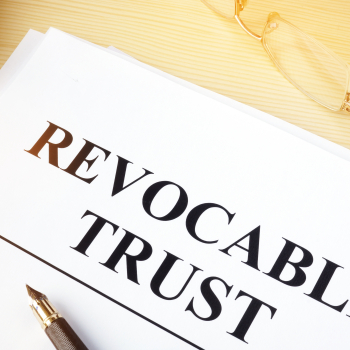A Trust is a tool you may consider creating as part of your estate planning. There are many reasons one may make sense for you. For example, if you want to delay someone’s inheritance, perhaps because there is a special needs situation, or you think the beneficiary should be at least 25 or 30 years of age, or older before being given their inheritance directly to make their own decisions (and perhaps mistakes). Perhaps you fear your child’s marriage may not last much longer. Those are typical reasons. However, a trust can also be used to simplify probate and/or for asset protection for you, not just the inheritance of others. That is less known, but very helpful. Trusts are a more common tool than you may realize!











